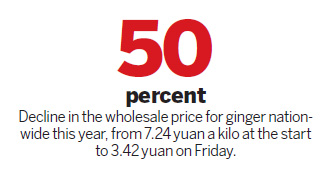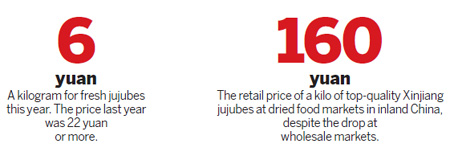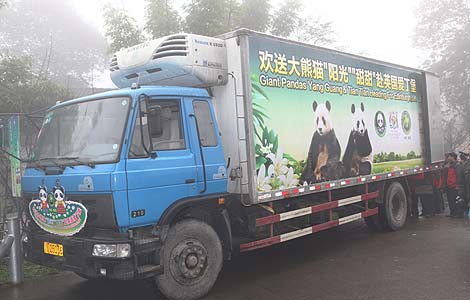The grapes of wrath
Updated: 2011-12-12 07:44
By Shao Wei and Qiu Bo (China Daily)
|
|||||||||
 |
The garlic roller coaster ride began at the end of 2009 and peaked last year "when some opportunist speculators sought to jack up the price of garlic," said Wang Chuan, a researcher in the Agricultural Information Institute at the Chinese Academy of Agricultural Sciences.
Speculators took advantage of the relationship between supply and demand, said one in Shandong who gave only his surname, Qin. When the price, which had been steady at 1 yuan a kilogram, slumped to 0.1 yuan, he said, speculators perked up.
Qin, a wholesaler, signed deals with garlic growers promising to buy their crop at the relatively high price of 3,000 to 4,000 yuan for every mu when it ripened. Then he sold his contracts, covering 97 mu, for more than 7,000 yuan a mu. And those buyers stored the garlic, selling it for much more. The retail price increased a hundredfold within two years, growing more expensive than meat.
 |
 |











